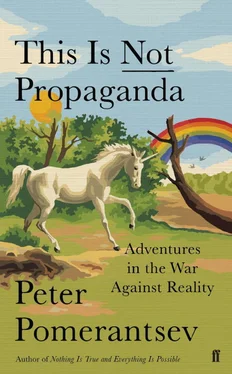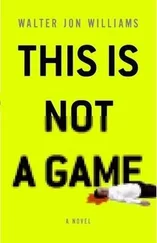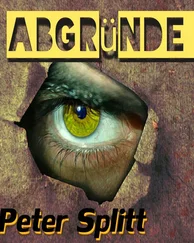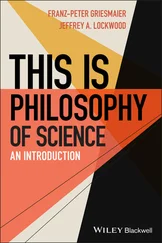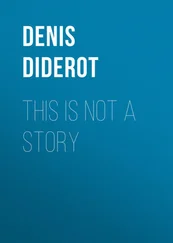This country has thrown off the chains of Capitalist Slavery! Bourgeois culture was always far from the people! Now it has revealed its true face: the face of the maidservant of monopolistic capital! Welcome the Socialist Sun! Let the Darkness be gone!
And:
Just a minute ago you were walking the street, breathing in air and breathing out words; now you have burst through to the page, now it will pour out, like wild berries you’d been carrying inside your jacket. Is there any joy greater than writing in the first person?
The novella is a celebration of the right and joy to define oneself. The narrator, inspired by reading the American modernist William Faulkner’s novel The Sound and the Fury, tries on different styles to describe his state of mind, Chernivtsi, his family. He writes in a punctuation-free stream of consciousness followed by brusque sentences, returns to a close reading of Faulkner’s technique and then tries something new again, wonders whether the story of the ‘I’ starts with personal memories of parents (no), the first questions about ethnic identity (no), the moment when you fall in love and truly notice someone else for the first time (yes).
I am in a room of music and smoke. My father’s taut back. The awfulness of newspaper editorials; what ponderous words father has to juggle. Machine and Tractor Stations, Party Directive… Did Faulkner begin with this? No.
Midday, helmets of cupolas, steep steps, we’re in T-shirts, six years old, in the cool close air of the church. From above a voice and a pock-marked face grunts: ‘Out, Jewish runt.’ Did Faulkner begin like this? No.
A girl, on the shore of you. How high the sky. How deep the kiss. We do not say ‘you’ to each other but ‘I’. I swim far out into you: past – buoys, past – horizons; glancing back could not see the rim of the shore and was glad. Remember how ten Julys ago you went into the breath-taking Black Sea and were a warm current in it. But does Faulkner have anything to do with this? He does. He does!
‘This admiration you have for William Faulkner,’ Colonel Vilen (a shortened form of Vladimir Lenin) asked Igor during their first interrogation, trying to find a way to get him to start talking, ‘you do realise he is a bourgeois writer?’
‘Actually he has been recently republished in the Soviet Union and proclaimed a Critic of the Bourgeois System,’ Igor countered. The KGB men hadn’t done their homework properly: Faulkner had recently been rubber-stamped. The line between ‘acceptable’ and ‘unacceptable’ authors was always shifting, depending on the political mood.
Igor’s strategy was to refuse to talk about friends, family or colleagues, which meant the only thing left to discuss was books. The interrogations became literary conversations. The KGB would switch between seduction and intimidation.
‘Cooperate with us! [As in report on your friends.] We have lots of writers whom we work with. We can help your career,’ they would say with a smile, before suddenly changing the mood and slamming on the table the banned books they accused him of having proliferated.
‘What criminal depths have you fallen to, Igor Jakovlevich?’
Vilen picked up one of the books. Aptly it was Invitation to a Beheading by Vladimir Nabokov, the nightmare story of a man in an unnamed country arrested for an unnamed crime. Vilen flicked through the book, shaking his head.
‘You will get seven and five for this.’
The threat wasn’t empty. Writers and literary critics in Kiev were getting the sentence all the time: seven in prison and five in exile in the Soviet hinterlands. In Moscow or St Petersburg you could keep Nabokov on the shelf with few repercussions. Here, where Soviet paranoia of Ukrainian insurrection ran deep, the rules were far more strict.
Igor denied ever having seen the books. ‘Deny everything,’ was the time-honoured tactic during interrogations, but at the same time it hurt him to say it: books had never betrayed him, but now he had betrayed books. He found his mind wandering to all the other hard-to-find banned books that must be stored in the KGB cellars. It must be a literary gold mine!
To keep his mind focused away from fear, he tried to humanise his interrogators. What were they like when not performing the crass good cop/bad cop routine? In the corridor on the way to an interrogation he noticed the KGB had their own gazette pinned to the wall. He chuckled; it meant they too were forced to write for their company paper, the Dzerzhinetz, named after Felix Dzerzhinsky, the founder of the original KGB, the Cheka. Did the crossword, he wondered, have a professional slant? These men followed some sort of invented professional ethic, which gave them the right to listen in to other people’s conversations, record on a magnetic strip someone else’s embraces, use those kisses for blackmail, to dictate which books you can and can’t read. There seemed to be no dividing line between the precise, rational logic of their questions and the casual way they would then use violence. He noticed they didn’t like being called KGB but preferred the old revolutionary term ‘Chekist’, as if that was more romantic, gave them a higher purpose. How did they inspire themselves to raid people’s apartments, break their friends?
The walks home after work were the worst. He listened for every car that drove past and prayed it wouldn’t stop, would please keep going. He would pause for an age outside his own door, scared to open it and find out what was on the other side. In his poetry of the time, the joyful ‘I’ is replaced with the third person, as people around him are ‘disappeared’ like pieces of grammar. Sun-dappled days are replaced with cloying nights. Prison barracks loom out of the brown fog, and instead of lovers in the moonlight the secret police become your night-time companions. In one poem the author, some sort of unidentified animal himself, hides terrified from gangs of alley cats. He describes fear as a hedgehog that first raises its cute muzzle inside his chest and then unfolds its spiky spine to rip it to shreds.
‘In October 1977 officials of the Kiev UKGB interrogated no less than sixteen acquaintances of POMERANTSEV, in an effort to obtain testimony relating to the charges,’ states the Chronicle. Of those interrogated only one broke and confessed that ‘POMERANTSEV had circulated anti-Soviet fabrications of a defamatory nature, such as that a creative people cannot realise their potential in the USSR.’
The KGB showed Igor the confession. When Igor confronted him, the snitch answered he had no desire to lie, even to the KGB: he was an honest person, wasn’t he?
Walking down the street Esfir bumped into an old friend from law school who now worked ‘over there’. ‘The case against Igor is fixed. There’s nothing you can do,’ he told her. Igor wrote:
The deed is done
and arrest will follow
in a month or so.
But in the interval,
even though everything is already determined and predetermined,
out of habit he thinks,
weighs and calculates,
as if he still had
some kind
of choice.
In the 1970s small bands of dissidents and non-conformists could barely dare to imagine how, just over a decade later, mass protests would swell across the world, from Moscow to Manila and Cape Town, and authoritarian regimes would be swept away, with millions of ordinary people on the street, pulling down the statues of dictators, storming the grim, large offices of the secret services that had oppressed them. The old order that Vilen represented seemed gone forever.
Читать дальше
